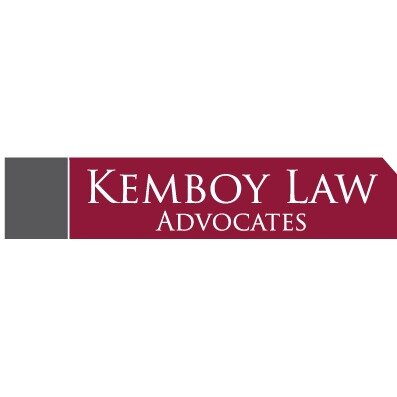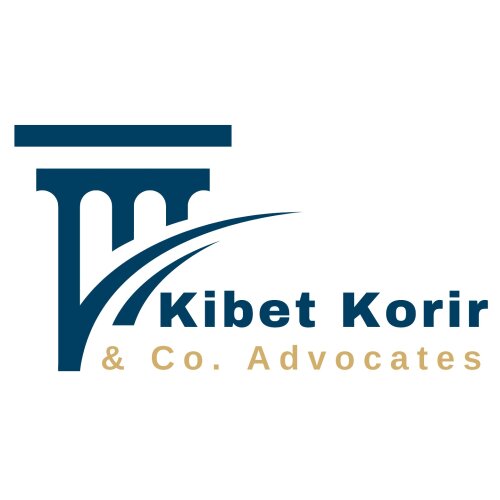About Licensing Law in Kenya
Licensing law in Kenya governs the granting of permits and approvals required for various business activities and professions. The regulatory framework ensures compliance with specific industry standards and protects public interest by ensuring only qualified entities or individuals engage in certain activities. These licenses may be issued by national or county governments, depending on the nature and location of the business or activity. Examples include business permits, professional licenses, health and safety certifications, and environmental permits.
Why You May Need a Lawyer
There are several situations in which individuals or businesses may require legal help concerning licensing in Kenya:
- Navigating complex regulatory requirements to acquire the necessary licenses for a new business or activity.
- Handling disputes or hearings related to license compliance or revocation.
- Ensuring renewals or modifications of existing licenses meet updated legal criteria.
- Interpreting multifaceted licensing agreements to protect intellectual property or conduct franchising.
- Understanding cross-border licensing requirements if conducting business with international elements.
Local Laws Overview
Licensing in Kenya operates under various legal frameworks depending on the sector of operation. Key aspects include:
- County Government Regulations: Local county governments manage business permits and operational licenses within their jurisdictions.
- Sector-Specific Regulations: Different industries like healthcare, hospitality, and telecommunications have unique licensing requirements overseen by relevant regulatory bodies.
- Environmental Management Coordination Act (EMCA): Regulates environmental permits for businesses affecting the environment.
- Intellectual Property Laws: Govern the licensing for use, distribution, and protection of intellectual properties.
Frequently Asked Questions
What is the process of obtaining a business permit in Kenya?
To obtain a business permit, you need to apply at your local county government office. The process typically involves filling out an application form, paying the requisite fees, and undergoing inspections depending on the nature of your business.
How long does it take to receive a license after application?
The time required to obtain a license can vary significantly based on the type of license. Some permits may be issued within days, while others requiring inspections or approvals could take several weeks or months.
Is it necessary to renew licenses annually in Kenya?
Most licenses and permits in Kenya require annual renewal. The specific terms depend on the type of license and the regulating authority. Businesses should always check the expiry of their licenses and initiate renewal processes early to avoid penalties.
What happens if I operate without a necessary license?
Operating without the required license can result in penalties, fines, or legal action, including closure of the business. It is crucial to comply with all licensing requirements relevant to your operations.
Can I transfer my business license to another person?
Generally, business licenses are non-transferable. You may need to apply for a new license if ownership or management changes, subject to conditions and approvals by the relevant authority.
What types of businesses require special licenses in Kenya?
Businesses in telecommunications, finance, healthcare, and hospitality often require special licenses. Additionally, businesses handling hazardous materials or those affecting public safety and health need specific approvals.
Are there any penalties for late renewal of a license?
Yes, penalties for late license renewal typically include fines, penalties, or surcharges. Continuous non-compliance can lead to further action, including cancelation of the license.
How can I verify the authenticity of a license?
Verify licenses through the issuing regulatory body. Many agencies have online portals to verify license numbers and status by business names.
Are there consultative services for licensing requirements in various sectors?
Many lawyers and consulting firms specialize in helping businesses navigate licensing requirements. Additionally, regulatory bodies may offer guidance services directly to businesses.
Can I challenge a license denial?
Yes, you can appeal a decision to deny a license. The appeal process depends on the specific regulatory agency, and it's advisable to seek legal counsel to navigate the process effectively.
Additional Resources
Consider consulting these resources for more information on licensing in Kenya:
- Kenya Investment Authority: Provides investment licensing information and support.
- Kenya Association of Manufacturers (KAM): Offers guidance on local industry licensing requirements.
- Kenya National Chamber of Commerce and Industry (KNCCI): Assists businesses with licensing and regulatory compliance.
- Local County Government Offices: Engage with these offices for area-specific licensing assistance.
Next Steps
If you need legal assistance with licensing in Kenya, consider these steps:
- Identify Your Needs: Clearly define the type of license you require for your business activity.
- Consult Professionals: Engage a lawyer or a professional consultant specializing in licensing law in Kenya.
- Gather Documentation: Prepare all necessary documents to support your licensing application or legal inquiry.
- Stay Updated: Keep abreast of changes in licensing laws and opportunities to ensure compliance and potentially leverage new benefits.
Lawzana helps you find the best lawyers and law firms in Kenya through a curated and pre-screened list of qualified legal professionals. Our platform offers rankings and detailed profiles of attorneys and law firms, allowing you to compare based on practice areas, including Licensing, experience, and client feedback.
Each profile includes a description of the firm's areas of practice, client reviews, team members and partners, year of establishment, spoken languages, office locations, contact information, social media presence, and any published articles or resources. Most firms on our platform speak English and are experienced in both local and international legal matters.
Get a quote from top-rated law firms in Kenya — quickly, securely, and without unnecessary hassle.
Disclaimer:
The information provided on this page is for general informational purposes only and does not constitute legal advice. While we strive to ensure the accuracy and relevance of the content, legal information may change over time, and interpretations of the law can vary. You should always consult with a qualified legal professional for advice specific to your situation.
We disclaim all liability for actions taken or not taken based on the content of this page. If you believe any information is incorrect or outdated, please contact us, and we will review and update it where appropriate.

















